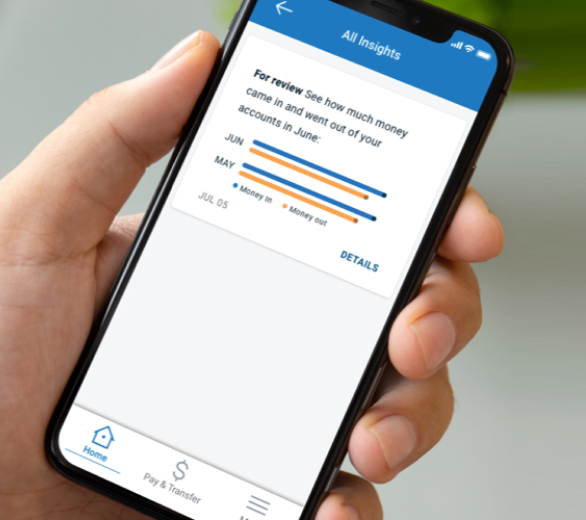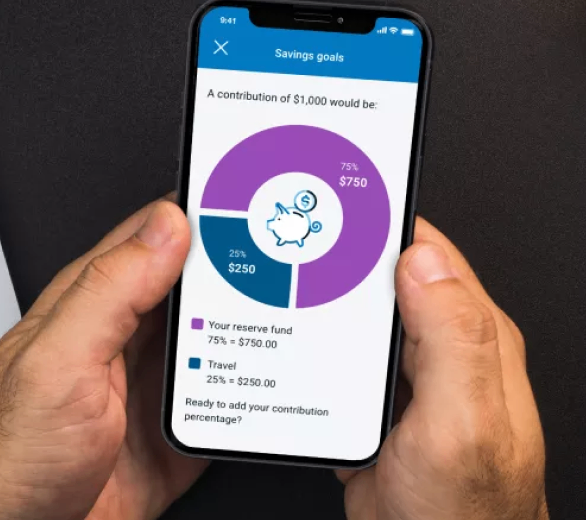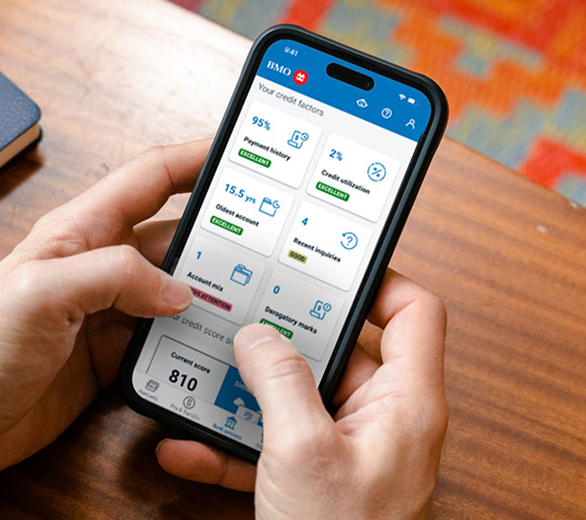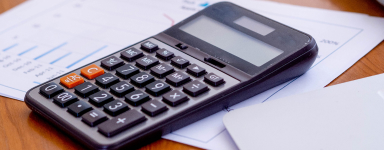What is debt consolidation?
Debt consolidation combines multiple debts into a single large loan, usually with a lower interest rate, lower monthly payments, or both. Instead of making multiple payments to different accounts, you merge them all and make one payment.


Learn how to manage your money with BMO SmartProgresstrademark
Start learningWe created an interactive learning platform so you can understand the basics of managing your debt and building financial confidence. Explore easy to follow lessons on budgeting, investing and more.
3 steps to pay down your debt and create a plan
We’ve created some initial steps to assist you on your journey to becoming debt-free.
1. Identify your debts
Start by listing all your outstanding debts such as credit cards, loans and lines of credit.
Knowing exactly how much you owe and who you owe it to will give you a clear picture of your financial situation.
This is also a good time to check your credit.
2. Find an option that works for you
Explore options like personal loans or lines of credit to see what suits your needs and financial goals.
Try our Help Me Choose tool to find the right borrowing option for you.
3. Create a debt repayment plan
Once you’ve picked a debt consolidation option, build a repayment plan you can stick to.
Set a realistic household budget, plan out your paychecks, and automate payments wherever possible.
BMO tools to help you manage your money

Get a personalized snapshot of your day-to-day spending
Use BMO Insights, our in-app tool available on the BMO Mobile Banking app to manage your money and provide you with over 20 insights. Here are a few:
Find out about payment increases with regular service providers
Get notified when there’s a significant increase in spending in a category
Get notified if your account may run out of money in the next seven days

We'll help you achieve your savings goals
BMO Savings Goals is a Mobile Banking feature that makes it easy for you to save for a vacation, a big purchase, or an exciting financial move.
Track your goals and get updates when you achieve your goal milestones.
Set up your savings goals. There’s no limit to how many goals you can set up.
Edit and change goals, set new goals, and adjust your contributions.

Know and monitor your credit score
We’ve teamed up with TransUnion® to give you a new tool that helps you check your credit without affecting it.
Access your full credit report
Learn how certain financial decisions might impact your credit with ScoreSimulator®
Learn how to build credit with credit building tips
Helpful articles, tips and advice

How to make an emergency savings fund
Many Canadians don't have enough saved for emergencies. Find out why an emergency fund is a key part of your financial wellness and how to get started.

How to improve your credit score
To many people, their credit score is a bit of a mystery. It’s a number that follows you around, but that you probably don’t see every day.

Understanding credit card interest
Everything you need to know to about credit card interest, how to avoid extra charges and tips on how to use your credit card wisely.

The six golden rules of saving
Follow these guidelines to set yourself up for future financial success.

How to build credit history in Canada
Whether you’re a student, a newcomer to Canada or trying to rebuild your credit, this article will help you better understand Canadian credit and learn critical first steps to building credit history.

How to save money
Get the most out of your savings account with these 8 tips on how to save money.
frequently asked questions
Debt looks different for everybody. It’s best to assess your finances and debts and decide what the best course of action is for you. That being said, debt consolidation can be useful for anyone with multiple debts. Doing so may help you simplify debts, lower your interest and monthly costs.
To get started, book an appointment and speak to one of our advisors about debt consolidation.
It depends on your credit score. A high credit score means you have a high chance to qualify for a debt consolidation loan. Generally, credit scores above 760 are considered excellent and you’re more likely to get approved for a loan with a lower interest rate.
If your credit score is lower than 670, debt consolidation may not be a good option for you. Consolidating debt when you have bad credit can be challenging. Although you may be approved for a loan, the interest rates offered to you will likely be high.
It's also important to understand that debt consolidation involves taking out a new loan which can affect your credit score. Learn how to improve your credit score and decide if debt consolidation is right for you.
Rebuilding credit after debt consolidation can take time, typically ranging from 6 months to years, but can vary depending on your circumstances. Paying your bills on time and consistently and keeping credit card balances low are key to seeing improvements in your credit score during this period.
It depends on what option you choose to consolidate your debt. Some options like balance transfer credit cards might require you to close your old credit card accounts while a personal loan option might not.
To improve your credit, it’s important to do the following:
Make payments on time: Paying on time has the biggest impact on your credit score. Set up email or text reminders for payment due dates or better yet, schedule automatic payments for your bills.
Pay off your debt: After payment history, the next most important credit score factor is how much you owe. If you're carrying one or more credit card balances, paying some of that debt down could raise your score. Remember to pay off the high-interest cards first.
Avoid applying for multiple loans or lines of credit: If you'll soon be applying for a personal loan or line of credit, hold off on applying for any other types of credit in the meantime. Each new inquiry for credit can trim a few points from your score.
